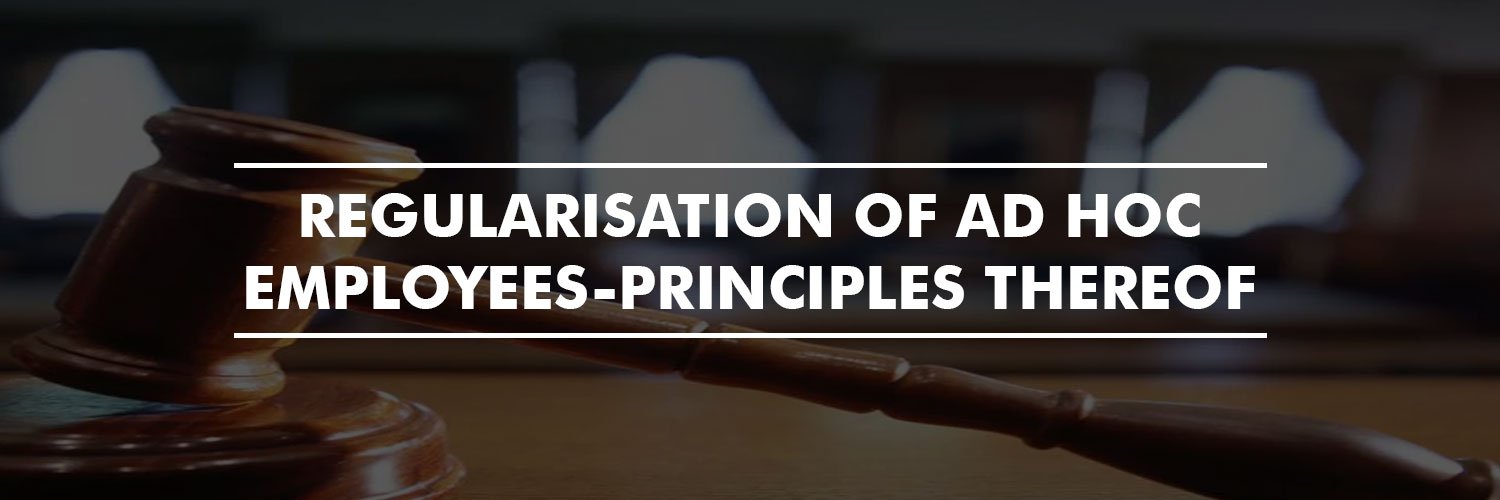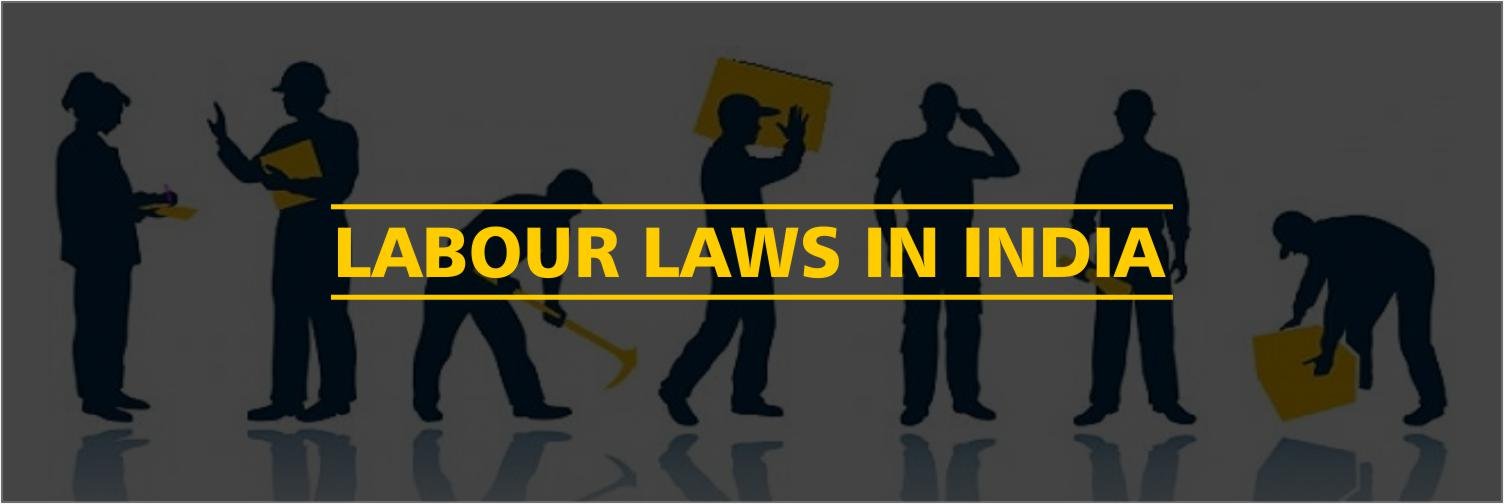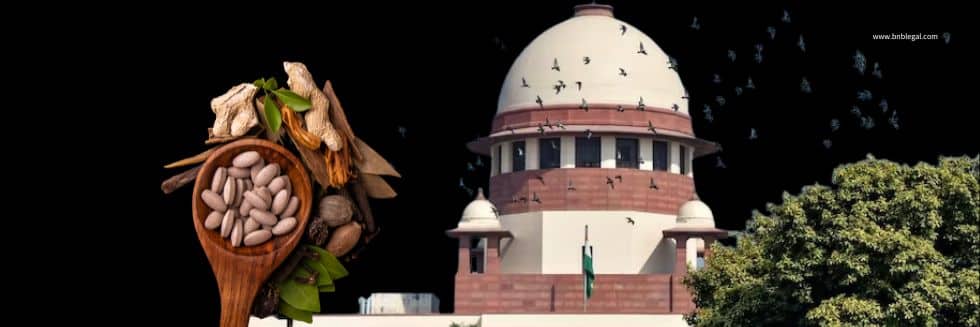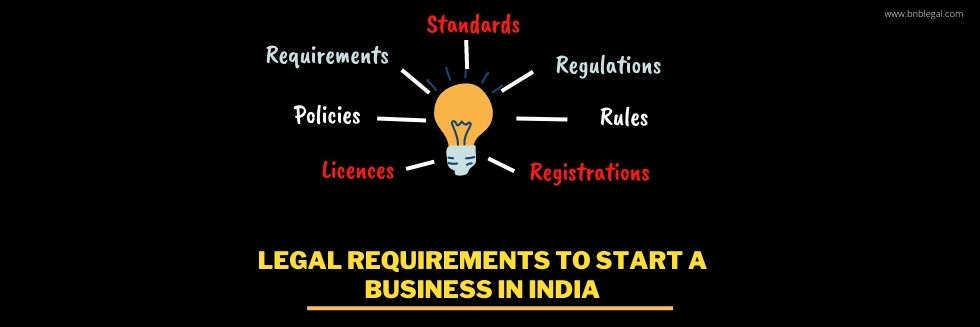It has been said that the State must be a model employer. It is for this reason, the Courts have stressed that a person should not be kept in a temporary or ad hoc appointment status for long. Where a temporary or ad hoc appointment is continued for long, The Court supposes that there is need and assurance for a regular post. In that event the Court may direct regularization of the ad hoc appointee.
In State of Haryana v Piara Singh,[1] a large number of writ petitions, arising from both the State of Punjab and Haryana, were heard together by the Apex Court and common judgment was delivered, giving certain directions in the matter of regularizations of the ad hoc and other temporary employees. The directions may be summarized as follows:
- The Court while giving directions for regularization of ad hoc employees, must act with due care and caution.
- From the mere continuance of an ad hoc employee for one year, it cannot be presumed that there is a need for a regular post.
- There can be no rule of thumb in such matters, Conditions and circumstances of one unit may not be the same as the other.
- The relief must be molded in each case having regard to all the relevant facts and circumstances of that case. It cannot be a mechanical act but a judicious one. The conditions or rules relating to length of temporary/ad hoc service precondition for regularization need not be uniform in each State.
- The employees must have possessed prescribed qualification at the time of ad hoc
- The condition that employee must have been sponsored by Employment Exchange would be reasonable and wholesome requirement designed to curb back door entry.
- The Court cannot direct regularization to help employees who could not satisfy the stipulated conditions.
- Exigencies of administration may sometimes call for an ad hoc or temporary appointment to be made. In such a situation, effect should always be to replace such an ad hoc employee by a regularly selected employee as early as possible. Such a temporary employee may also contest along with others for such regular appointment/selection.
- The appointment of the regularly selected candidate cannot be withheld or kept in abeyance for the sake of such an ad hoc
- As ad hoc employee should not be replaced by another ad hoc employee; he must be replaced by a regularly selected employee.[2]
- Even where an ad hoc employment is necessitated on account of the exigencies of administration, he should ordinarily be drawn from the Employment Exchange unless it cannot break delay in which can the pressing cause must be stated on the file.
- If no candidate is available or is not sponsored by the Employment Exchange, some appropriate method consistent with the requirement of Article 16 should be followed.
- An unqualified person ought to be appointed only when qualified persons are not available through the above process.
- If for any reason, an ad hoc employee is continued for a fairly long time, the authorities must consider his case for regularization provided, he is eligible and qualified according to rules and his service record is fair and his appointment does not oppose to the reservation policy of the state.[3]
- If and when an ad hoc employee is regularized, he should be placed below the last regularly appointed employee in the category, class of service, as the case may be.
- The Apex Court further suggested that the proper course would be that State might prepare a scheme, if one did already in vogue, for regularization of ad hoc or temporary employees consistent with its reservation policy. If a scheme was already framed , the same might be made consistent with the above mentioned observations so as to reduce avoidable litigation in this behalf.
In J. & K. Public Service Commission v Narinder Mohan,[4] the Supreme Court explained the effect of the decision in State of Haryana v Piara Singh,[5] and observed that the Apex Court did not appear to have expected to lay down, as a general rule, that in every class of ad hoc appointment, if ad hoc appointed continued for a long period, the rule of recruitment should be relaxed and the appointment by regularization be made. The Court, therefore, held that a little margin to make an ad hoc appointed due to emergent crises, did not dress up the executive Government with power to relax the recruitment to be regular or in accordance with rules.
In the instance case, lecturers were appointed on ad hoc basis in different disciplines of medical education. The Government finally afterwards relaxed the rules of recruitment and appointed these lecturers on regular basis. These appointments were held de hors the rules and not in the accordance with the rules, which required the recruitment to be made by public Service Commission. The Court thus ruled that where the Rules required selection through Public Service Commission, the Executive could not relax the rules in the exercise of its general powers.
[1] AIR 1992 SC 2130.
[2] V. S. Malik v Haryana State, 1994 (5) SLR (P. & H.)
[3] Rabinarayan Mohapatra v State of Orissa, AIR 1991 SC 1286.
[4] AIR 1994 SC 1808.
[5] AIR 1992 SC 2130.









